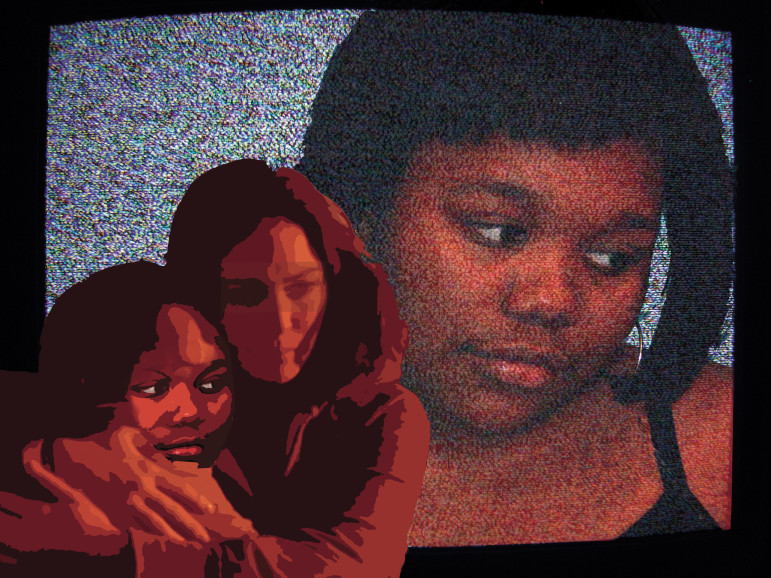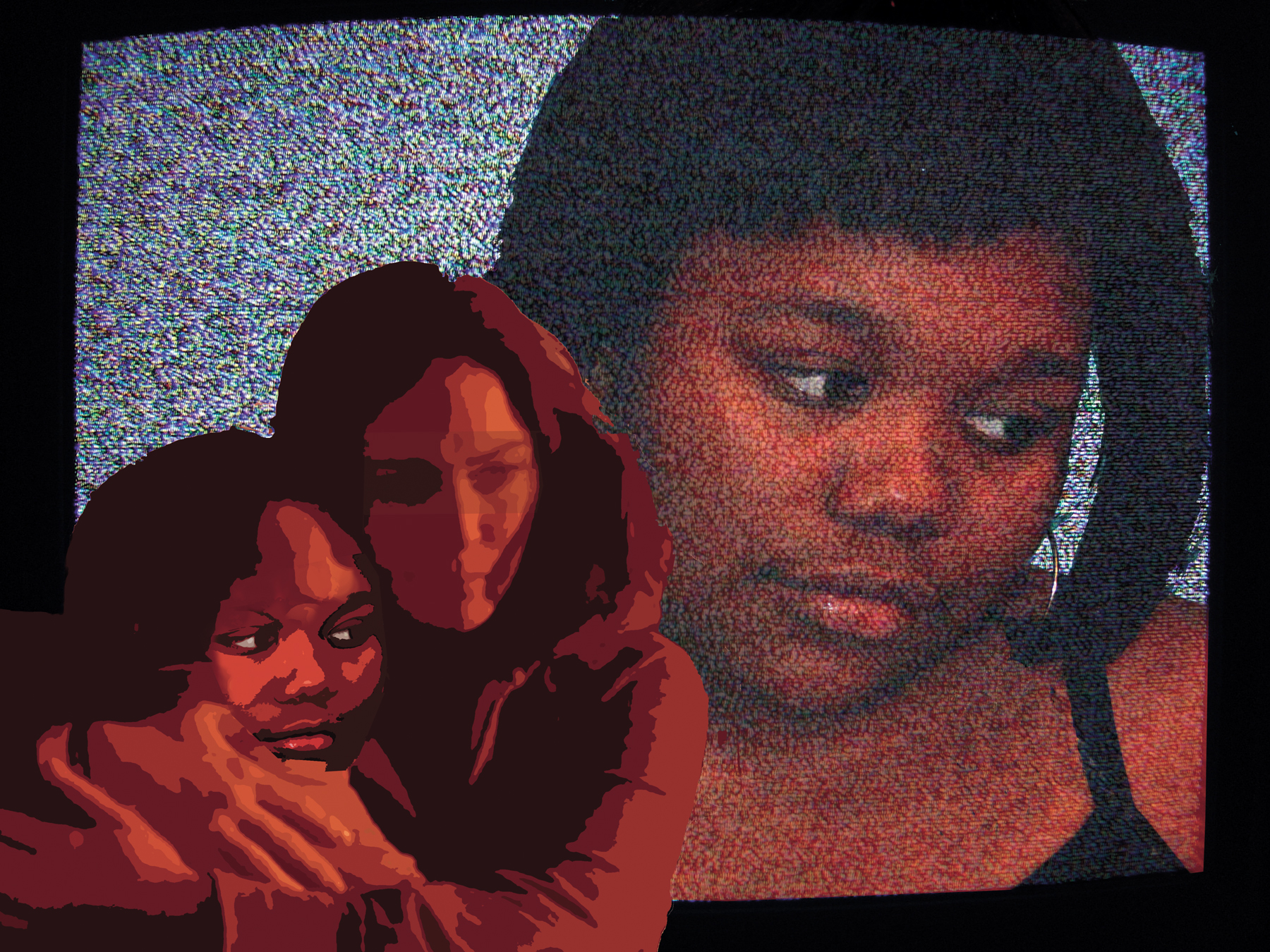
I loved my mother with no question until I was 12, even though she hit me, cursed me and left me alone. Most of that time I was in foster care waiting for her to save me from my miserable, unstable life, but she kept letting me down. She missed agency visits I looked forward to, hoping to feel normal for an hour. I kept waiting for that mother-daughter relationship.
Something shifted, however, when I was 12. We were having a supervised visit in my foster care agency. It was my fourth time in that small family room, which had a wall lined with tiny plastic kitchenettes and a kiddie workshop. Babbling babies and children played among dolls strewn across the floor. I remember the smell of the treats and food other parents brought for their children. My mother was sitting in a blue chair near the toy area.
I said in a joking tone, “You owe me” about something.
She answered harshly, “I don’t owe you sh*t.” Her words were a blow to my chest. I knew then that the words my father frequently spoke were true: She did not care about me. As the tears ran down my face, I got up and asked my caseworker if the visit could be over.
My mother did not apologize for getting high off the money she got from selling jewelry my father gave me. She did not apologize for lacking parental skills supposedly taught in the programs she claimed she attended. She did not apologize for what she’d just said — that she owed me nothing. It made me wonder what our relationship meant: What do I owe a mother whose love was so skimpy, a woman mighty in flight but lacking in attentiveness and motherly love?
My mother never grasped the bonding idea. I first went into the care of her first cousin when I was a baby, but lived illegally with her and my father when I was 5 and 6. She would go in and out, leaving me in the house alone. She got annoyed fast, and that meant beatings or pops with her fingers on my lips. My residency with her ended though, after she yanked me off the floor by my T-shirt and swung the belt, which left a mark on my face, and took me to the park. She brought my younger twin brothers in their carriage. My father was there, and he put something inside the baby carriage. The police approached us and found the drugs at the bottom of the twins’ carriage. They arrested my father right there.
“What’s your address?” the cop asked me, bending down. He saw the mark on my face and asked what happened. My mother answered, “She was playing.” I started to cry, and my mother told me to “shut the f*ck up,” which made me cry harder. I could never recall our address when my mother asked me, but today I could, and I told the cop. My mother’s face grew cold and she spit out like daggers, “Now you remember?” The officer grabbed my hand and we walked toward the cop car. That night I ended up in Queens with my aunt, and my brothers went into care. I would not see my brothers for years.
I stayed with my aunt for about four years. After that, I moved constantly. I can remember nine homes, but there were more. At one placement, I was living with my twin brothers, but my foster mother got rid of them because she could not control them. The longest stay before my current placement was a year, with the wife of my uncle.
No one could handle a child with temper problems, even if they did like me when I was calm. I was beginning to lose myself in my depression. I was an honor roll student who started to fight after settling into each new setting. I started to believe I would never find a foster mother who would give me a chance.
I was still seeing and talking to my mother on the phone and visiting her at her different locations since she could not keep a place too long. On occasion, my mom would get upset with something I would tell her and her response would be, “Well, that’s not your mother.” She said this enough that I stopped calling my foster mothers “mom.”
Who wins?
Who knew a mess like me could finally find a foster mother who cared enough to take me in and love me? When I realized, at age 13, that I finally had a home, I told my lawyer I did not want to return to my birth parents, ever.
I still kept in contact with my parents, though. The conversations with my mother never really lasted long, but I had a strong bond with my dad. The phone conversations were always like skating on thin ice because of the upcoming court date that would decide if my parents lost their parental rights. They knew of my decision not to go home. My father was the main one always questioning why I did not want to be with family.
“Family is important. Those people out there don’t care about you,” my father told me, but I felt he was wrong. A few foster mothers I met have cared about me. Nothing could change my mind. I was sitting in bed reading when I got the call from my mother. I cried as she yelled at me through the phone, cursing me out.
“You told them you didn’t want to come home because you hated me? I don’t care if you hate me,” my mother yelled.
“I didn’t say that,” I lied. I just wanted the conversation to be finished.
“So, why they said that in the damn courtroom today?”
I stayed quiet as a tear slipped down my face, then hung up the phone while she was talking. The rest of the day was nothing but vile voicemail messages.
I told my foster mother, “My parents hate me. They’re mad ‘cause their rights got terminated today.”
“They shouldn’t do that to you. You wait so long for them; now they get mad because you don’t want to go home.” Her Spanish accent was thick, and her words often misplaced themselves. I appreciated her for taking the role my mother should have played, pointing out what was fair and that I deserved decent treatment and a kind home.
My mother kept throwing it in my face that I had broken up the family, and it seemed like she turned other family members against me. Even though I did not want to live with them, I felt as though I was the one who had lost. My parents said that if I had come home I would have nice clothes, shoes and money when I wanted. My dad said I would be smarter in mathematics and not getting into any fights if I returned to them. My mother thought I owed her phone calls and visits. So I would call and go to family events, which always had me on edge because I felt ashamed of my decision. When they laughed together, I felt like I was imposing on their family fun.
The beginning to an end
The last argument I had with my mother was when I was 17. I went to visit her in North Carolina, where she had moved in the middle of 2012. The visit with her was surprisingly calm and inviting. My mom was cooking Thanksgiving dinner, and I ran down the stairs to see if it was OK to eat. My mother would get upset when people were in the kitchen while she cooked.
“Can I have my own pie?” I asked my mother greedily.
“No, there’s not enough,” my mother replied.
I pouted and clutched her shoulder, “Please? They are so good.”
My mother chuckled and said, “You can get half.”
That moment was what I had wanted for so many years. I felt like things with my family had patched up, that I had found that family bond.
But that quickly ended the day after I got back to New York. I talked to my older sister (my mom has seven kids), and she asked if my mom had said anything about her during my visit. My sister was one of the very few family members that still held my trust and loyalty.
“She was talking mad sh*t about you and why you left. I didn’t even want to hear it honestly,” I said before I went into detail. “She was talking about how lazy you are, how you just stayed upstairs all day, and how you were acting mad funny.” Before I hung up, I said, “Don’t tell mommy I told you, though.”
Ten minutes later, my mother called.
“Who the f*ck told you to tell her what I was saying. I already told her, so why would you go and tell her?” my mother yelled.
“If you told her already what’s the problem?” I said defensively. From there we began cursing each other out. I hung up on her angrily and called my sister. My sister apologized then suggested calling my mother, while I listened silently on the line. So I heard my mother say about me, “F*ck that white b*tch.” As if I was a stranger.
I couldn’t believe my ears. I did not talk to her again until after my 18th birthday.
College for me
I messed up my senior year of high school and both my parents were upset. “I want you to graduate. You see, if you ah live here, trust me you ah graduate already,” my father bellowed in his Jamaican accent. My mother’s reaction was calmer as we had a long talk, and she would tell me I have to get back on track and do what I need to do to graduate. She said, “We just want to see you graduate and go to college. Make something of yourself.”
That was a year ago. Since then I attended all my classes and worked hard. A school staff member, Mr. Green, helped me get back on track with tough love, but then he passed in the winter. My foster mother’s uncle who favored me also passed away. I was broken, but I did not let that get in the way of the goal Mr. Green and I had set up.
I graduated high school June 2014, and I felt great. My best friends were there, and my family was there, including my mother and my father. Having them there felt heartwarming and like a great relief. I’d given them the last of what I owed them.
“I’m very proud of you and I love you,” my mother said smiling hard.
“Thank you,” I replied. It felt good to hear that, but I’d stopped looking for that mother-daughter bond. Those years of her letting me down had worn away my hope. I was free from feeling as if I owed her anything. I gave my parents what every parent should get a chance to see — their child walk down the aisle for high school graduation. College is more for me, to prove that no matter how they treated me, I will come out on top.
The author, now 21, was 19 when she wrote the story as a participant at Youth Communication, a New York City-based nonprofit that helps educators engage struggling youth and build their social, emotional and literacy skills. This column was created for Represent, Youth Communication’s magazine written by and for youth in foster care. Names have been changed.






























